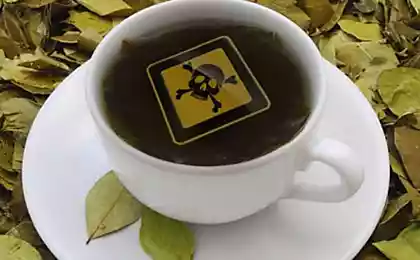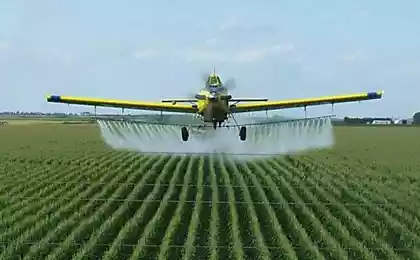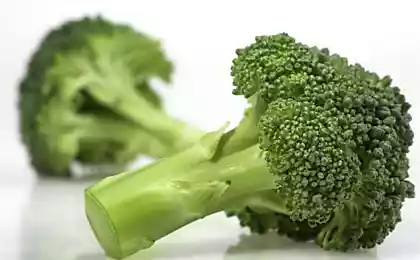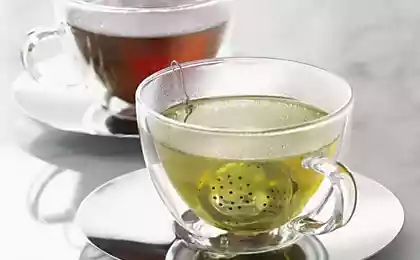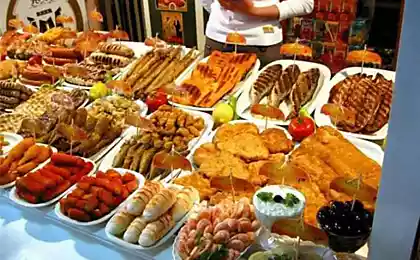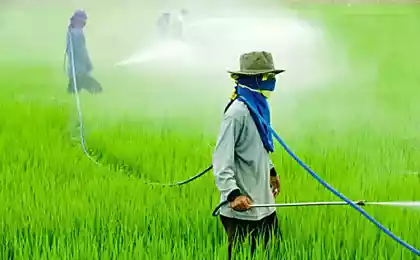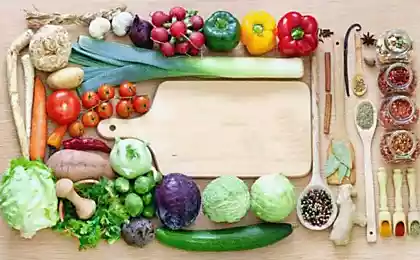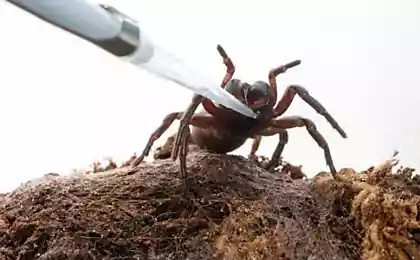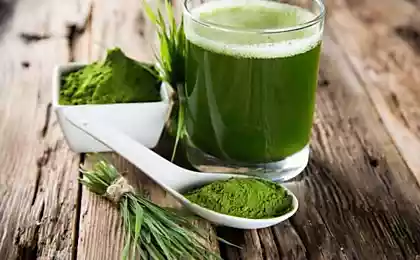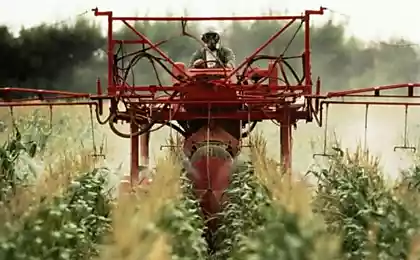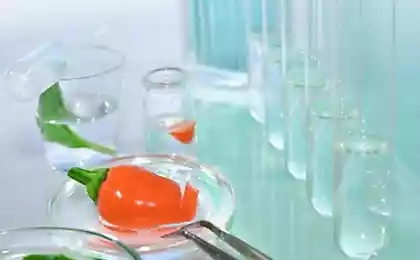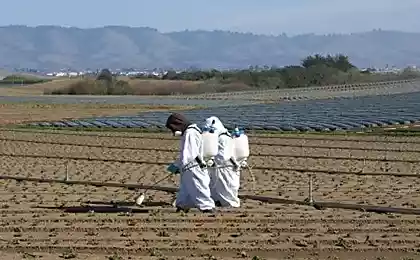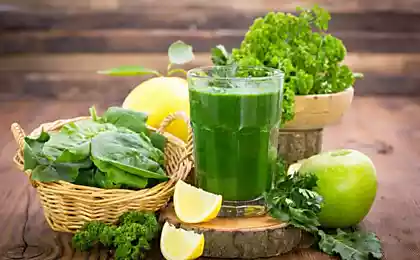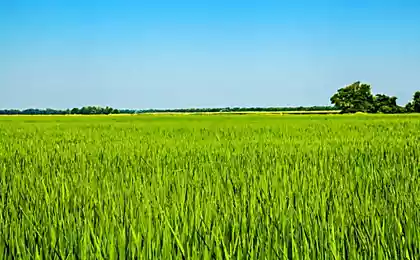416
A list of the main carriers of pesticides and toxins that we eat every day
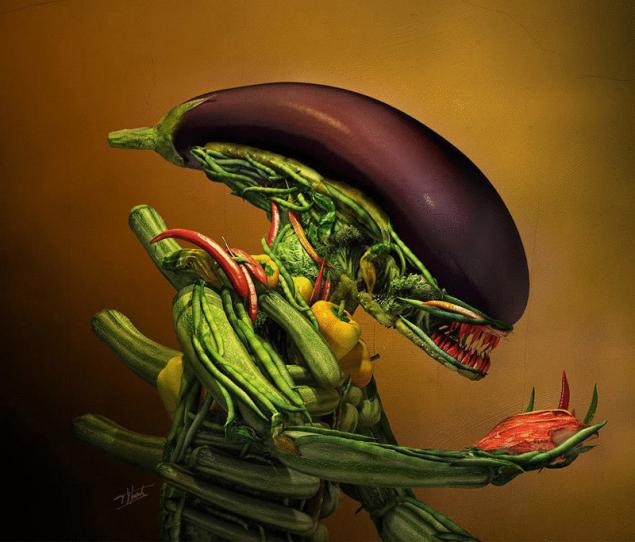
©Till Nowak.
Any scientific advancement can open the Pandora box that is best left closed. With regard to agricultural industry, pesticides help feed the world, keeping profitability high and prices are low. But this is only half the story.
First and foremost, from a human point of view, the pesticides, which by their very nature can be toxic to humans, are on our food. They also enter the food chain through insects and birds that feed on plants and using pesticides wash into rivers and groundwater.
Then the costs — both for the farmer and for the consumer — should include a huge amount of chemical used, the environmental cost of their production, transportation and deployment.
Finally, some pesticides are considered to be the cause of the depletion of "useful" insects, such key pollinators like bees and lacewing, the latter of which is one of the most effective natural pesticides.
While all advanced governments have rules concerning the limits of permissible pesticides for fruits and vegetables, some environmental groups believe these rules are not effective enough. It is obvious that these groups would prefer zero pesticide use, but their views and studies need to be heard. One such group EWG publishes an annual list of "Dirty Dozen" of the products that appear at the top of their list of carriers of pesticides. Below are ten of them — they are fruits and vegetables contaminated with a large amount of pesticides and toxins. It depends on you whether you change your lifestyle or not, we offer some useful alternatives for your health.
1. Apples
Regardless of the reasons non-organic apples, even when well-rinsed, show the amount of pesticides, which the EWG considers shocking. It may be wise to switch to organic apples grown in the village. Or kiwi, which is tenth in the list.
2. Celery
Favorite as a key ingredient for delicious soup, crisp salad or vaganski dishes, as well as being known for its (only natural) as a "negative calorie" celery is a great carrier of pesticides, taking 2nd place in the list. Why not try a subtle red onion instead?
3. Pepper
Although it can be quite expensive in the stores, we can be sure it's not because peppers are grown organically, so big it list of harmful organisms. Maybe eggplant will be able to replace the pepper in your favorite recipe.
4. Peaches
If you are going to move to a place where they eat a lot of peaches, make sure they are organic. These soft fruits with their unique taste, unfortunately, an oasis of pesticides. The closest alternative is probably the mango, but it is in the bottom ten list.
5. Strawberry
Eat only homemade strawberry or grow themselves.
6. Grapes
Lovers of the grape never admit it, but unfortunately the grapes of the worst products when it comes to pesticides. It's just awful, because the grape is one of the favorite fruits that parents give to children. As with peppers, Economics of pesticide use was hardly to the consumer through pricing. But we have to be careful, and it is difficult to provide a direct alternative, although the kids really love beans and eat it as a snack.
7. Spinach
Love and hate in equal measure, spinach, nevertheless there, in the top ten carriers of pesticides. It's a shame because it's such a healthy food, vegan love it for its iron content, it is delicious with goat cheese or on a pizza. But should be discontinued, unfortunately. Replace it with a cabbage and you'll be much safer.
8. Lettuce
The other main product, without which no salad, sandwich or Burger is complete. But he's on this list. Again, cabbage can come to the rescue.
9. Cucumber
Harmless and very tasty, the cucumber is also suffering from toxins due to the use of pesticides. The only real alternative is to insist on finding an organic supplier.
10. Potatoes
Record surprise, which is one of the main products, potatoes. Although technically it is in the list at number 12, we have included it in the top ten, as it is our main product. In any case, go for organic varieties, or if you have a cottage, try to grow some yourself! Try to find villagers who are not sprinkled your potatoes and cut their reserves for the winter.
More than 90% of Indian teas contain prohibited pesticides
Recently, Greenpeace has published a report containing alarming information about the tea grown in India.
According to Greenpeace, more than 90% of tea samples taken from 11 brands contain pesticides in amounts exceeding the permissible limits FDA (Association of food and drug administration USA), and almost 60% of investigated teas contain in their composition more than 10 chemicals.
Moreover, one third of tested tea samples contain DDT (dichlor-diphenyl-trichloroethane) is a substance having a strong carcinogenic effect and are extremely dangerous to human health and the environment.
Among the substances contained in these teas are: monocrotophos (declared by the world health organization as a very dangerous substance with serious effects on the nervous system), triazofos, tebufenpyrad (a chemical that is not even registered in the catalog the FDA, therefore its sale and use are illegal, it is very dangerous to the liver) and neonicotinoid (a substance recently banned by the United States Service for the Protection of fish and game). published
P. S. And remember, only by changing their consumption — together we change the world! ©
Source: www.ecology.md/section.php?section=health&id=11363&pr=1#.VONZhLCsWnE
Elon Musk will orbit the first satellite of Turkmenistan
Where does passive-aggression and what to do with it

